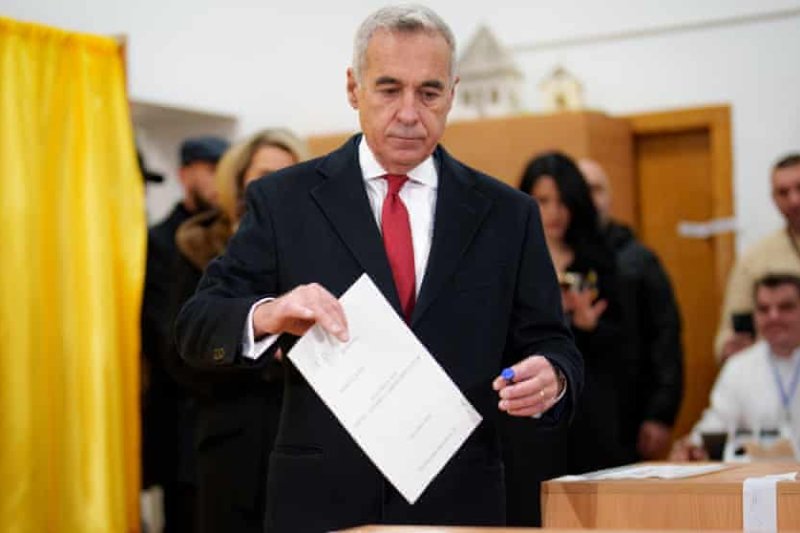Romania Votes in Parliamentary Election amid Claims of Russian Interference
Voting is under way in parliamentary elections in Romania, with voters still unsure whether the shock result of last week’s presidential first-round ballot will stand amid continuing allegations of electoral fraud and foreign interference.
Far-right parties are forecast to make significant gains in Sunday’s parliamentary vote, with polls showing the nationalist Alliance for the Union of Romanians (AUR) slightly ahead of the Social Democratic party (PSD), part of the ruling coalition.
The election comes a week after C?lin Georgescu, a far-right, Moscow-friendly independent who had previously been polling at barely 5%, finished first in the opening round of the presidential vote, an outcome that upended Romanian politics.
Georgescu’s unexpected success, after a campaign which he said had zero financing but was based heavily on viral TikTok videos, reportedly boosted by bot-like activity, has triggered nightly protests and aroused suspicions of external interference.
The country’s top court ordered a recount and is due on Monday to announce its decision on a request by a defeated candidate to annul the vote altogether over allegations of illegal electoral activity on behalf of the second-placed candidate, Elena Lasconi.
The election comes a week after C?lin Georgescu, a far-right, Moscow-friendly independent who had previously been polling at barely 5%, finished first in the opening round of the presidential vote, an outcome that upended Romanian politics.
Georgescu’s unexpected success, after a campaign which he said had zero financing but was based heavily on viral TikTok videos, reportedly boosted by bot-like activity, has triggered nightly protests and aroused suspicions of external interference.
The country’s top court ordered a recount and is due on Monday to announce its decision on a request by a defeated candidate to annul the vote altogether over allegations of illegal electoral activity on behalf of the second-placed candidate, Elena Lasconi.
“People who have serenely voted for Georgescu do not realise we are essentially talking about a total trajectory shift,” the political scientist Cristian Pîrvulescu said.
Amid widespread voter anger over the cost of living and a long legacy of political corruption, analysts said far-right parties such as the AUR were likely to benefit most from the turmoil, which has further tarnished public trust in state institutions.
“The net beneficiaries … are Georgescu and the anti-establishment camp, which is now getting additional ammunition: here is how state institutions work, how discretionary they are,” said Sergiu Mi?coiu, of Babe?-Bolyai University.
Voters echoed that view. “What’s going on now doesn’t seem very democratic,” Gina Visan, a 40-year-old nurse, told Agence-France Presse. “They should respect our vote. We’re disappointed, but we’re used to this kind of behaviour.”
Polls late last week put the AUR on about 22%, with the PSD of the outgoing prime minister, Marcel Ciolacu, on about 21% – down sharply since the presidential ballot – and Lasconi’s centre-right, pro-EU Save Romania Union (USR) on 17%.
Many observers believe the country’s political landscape is about to shift sharply to the anti-establishment right. Romania has the EU’s biggest share of people at risk of poverty, the bloc’s highest inflation rate and its largest budget deficit.
“The impact of presidential election surprise will be significant – we are going to wake up in a new political reality,” said the political analyst Cristian Andrei. “Georgescu voters will speak again and reshape how we look at Romania’s political spectrum.”
(Source:BBC)













